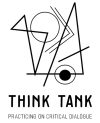Ambaradan round table discussion 9
In the 9th Round table, we have a conversation Mo Li, a current Ph.D. candidate and content creator that discusses different aspects of the art economy. The conversation focuses on the art market from different perspectives and the importance of understanding the art market and art economy for young artists. We also talked the inclusivity vs. exclusivity in the art world and how it could be approached by the different marginalized groups and finalising closing the conversation with cancel culture and its relationship with censorship.
Ambaradan round table discussion 8
Ambaradan round table discussion 7_ Chapter II
As a continuation to our last discussion, we host a conversation with Attiat Gamal, a bright upcoming archaeologist who is currently doing her master’s in Global Archaeology at Leiden University. The discussion was focused on the history and future of museums, their roles, and restructuring them while confronting their colonial heritage. Her points on colonial past along with controversial examples opened up new thoughts on technological development in the museum field.
Ambaradan round table discussion 7
With a brilliant artist, designer, and thinker Ahmed Isam Aldin, we had a conversation one more time. In the discussion, we focused on different curatorial practices regarding how to display the colonial past and reflecting the present social and political events. He gave insights from the artist’s perspective about what kind of operational changes are expected for the new decade in terms of technological opportunities and inclusivity.
Ambaradan round table discussion 6
From the very beginning, we would love to have a dialogue starting with our close circle of people who are interested in architectural pedagogy and cultural studies. In this round table discussion, we have two young and bright architects based in New York City. AbuBakr is an architect, researcher, and writer who did his master’s in advanced architectural design from the Columbia University: he is interested in critical discourse in architecture. And Bhargav is an architectural professional with comprehensive experience in a variety of projects. and he is involved in multiple initiatives and organizations along with his intellectual interest in architecture, new technology, and culture. He accomplished his master’s in University of Buffalo Material Culture and Inclusive Design.
Ambaradan round table discussion 5
At this round table, we talk to the amazing artist Nuveen Barwari about her art practice and art experiences by non-western artists. The conversation shed some light on the experiences of an artist from a Kurdish background, as well as discussing some very interesting topics, in the concepts of otherness, identity, national identity, Multiculturalism, home, and interesting art materials. As well as highlighting the importance of dialogue in non-western contexts. It confirmed the need for dialogue and conversation, and we would love to have more of these conversations in the future.
Ambaradan round table discussion 4
Both Dilan and Malab gave lots of insights into the Italian art world. We discussed a variety of topics like identity, representation, queer art, the future of museums, and alternative art spaces. Many points could be extended in different directions. That’s why we would like to have a second-round again. The main take away from the conversation would be a single phrase: leave more space for dialogue!
Ambaradan round table discussion 3
In a round table discussion with Ahmed, we unfolded the notions of postcolonialism and de-colonialism and how the cultural institutions contribute to the contemporary discourses. We would like to know more about Ahmed’s artistic practices as a Sudanese native in Germany in the second part, in a while.
Ambaradan round table discussion 2
At this round table, we talked about a lot of things that revolves around museology, from identity politics to the definition of what is society although our main focus was heritage management.
Ambaradan round table discussion 1
In the very first round table discussion, we talk two of our colleagues from the University of Politecnico di Milano and an interesting guest based in New York. Initially, we focus on the idea of launching a think tank, our manifest, and the feedback from the participants. In the pace of the discussion, we also mention the lack of critical thinking in our education. Since we all come from different parts of the world, we had a chance to compare our educational backgrounds in terms of architectural design and approach to historical contexts.










